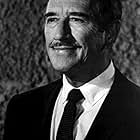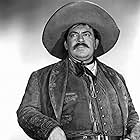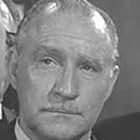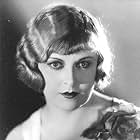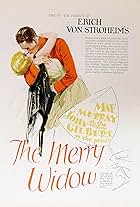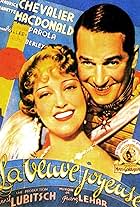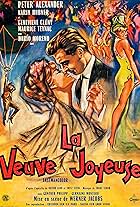अपनी भाषा में प्लॉट जोड़ेंOperating under royal orders, a count must woo a young and wealthy widow in order to save a kingdom from bankruptcy.Operating under royal orders, a count must woo a young and wealthy widow in order to save a kingdom from bankruptcy.Operating under royal orders, a count must woo a young and wealthy widow in order to save a kingdom from bankruptcy.
- 2 ऑस्कर के लिए नामांकित
- 2 कुल नामांकन
Sujata Rubener
- Gypsy Girl
- (as Sujata)
Ludwig Stössel
- Major Domo
- (as Ludwig Stossel)
John Alban
- Club Patron
- (बिना क्रेडिट के)
Erville Alderson
- Cart Driver
- (बिना क्रेडिट के)
Bette Arlen
- Girl at Maxim's
- (बिना क्रेडिट के)
Frank Arnold
- Waiter
- (बिना क्रेडिट के)
Gertrude Astor
- Reception Guest
- (बिना क्रेडिट के)
कहानी
क्या आपको पता है
- ट्रिवियाAfter Lana Turner's millionaire husband Bob Topping left her in 1951, she slashed her wrist and had to wear a bracelet during this shoot to cover the scar.
- गूफ़The statement about beginnings of decades and centuries, is absolutely not correct. :-)
- भाव
King of Marshovia: I'm not asking you to fall in love with the woman. Marriage is quite enough.
- कनेक्शनFeatured in That's Entertainment, Part II (1976)
- साउंडट्रैकGirls, Girls, Girls
(uncredited)
Music by Franz Lehár
Lyrics by Paul Francis Webster
Sung by Fernando Lamas
फीचर्ड रिव्यू
My wife and I met doing a professional production of "The Merry Widow" in 1982 -- in English, but a straight translation.
Only the very basic skeleton of the original plot is visible in this "adaptation". Most of the characters have been deleted, along with the entire B plot, and all but one of the characters remaining have been renamed. Most of the characters in the movie aren't in the operetta, either. The action has been moved from Paris to, at first, Washington, DC, and then to the fictional country of Pontevedro, which the movie has renamed "Marshovia", and only later to Paris. The net result is that we don't reach the beginning of the original play until about 45 minutes in.
And the main source of tension in the plot is deleted, too. In the original, years before, Count Danilo and the heroine were very much in love, but his family refused to allow them to marry because she was poor; it's his broken heart that has rendered him a careless playboy. Now that, as a widow, she's the richest woman in the world, she still loves him, and he still loves her, but his pride won't let him admit it to anyone, even himself, and she must spend three acts playing mind games to break him down. The trope of the aristocrat with money problems who won't admit that he's in love with a rich woman for fear of what people will think supplied the main plots of a substantial fraction of Viennese operettas for decades after the 1906 "Widow". In this movie, they've never met before, which rips out not only the heart of the whole thing, but nearly all the comedy.
Lamas does a pretty decent job, though.
An interesting musical point is that several times we hear a snippet or so of "Trés Parisien", an extra song written (in English, despite the title) for the London première, which was not, as far as I know, usually found in American productions until the 1980s or so.
Only the very basic skeleton of the original plot is visible in this "adaptation". Most of the characters have been deleted, along with the entire B plot, and all but one of the characters remaining have been renamed. Most of the characters in the movie aren't in the operetta, either. The action has been moved from Paris to, at first, Washington, DC, and then to the fictional country of Pontevedro, which the movie has renamed "Marshovia", and only later to Paris. The net result is that we don't reach the beginning of the original play until about 45 minutes in.
And the main source of tension in the plot is deleted, too. In the original, years before, Count Danilo and the heroine were very much in love, but his family refused to allow them to marry because she was poor; it's his broken heart that has rendered him a careless playboy. Now that, as a widow, she's the richest woman in the world, she still loves him, and he still loves her, but his pride won't let him admit it to anyone, even himself, and she must spend three acts playing mind games to break him down. The trope of the aristocrat with money problems who won't admit that he's in love with a rich woman for fear of what people will think supplied the main plots of a substantial fraction of Viennese operettas for decades after the 1906 "Widow". In this movie, they've never met before, which rips out not only the heart of the whole thing, but nearly all the comedy.
Lamas does a pretty decent job, though.
An interesting musical point is that several times we hear a snippet or so of "Trés Parisien", an extra song written (in English, despite the title) for the London première, which was not, as far as I know, usually found in American productions until the 1980s or so.
टॉप पसंद
रेटिंग देने के लिए साइन-इन करें और वैयक्तिकृत सुझावों के लिए वॉचलिस्ट करें
- How long is The Merry Widow?Alexa द्वारा संचालित
विवरण
- रिलीज़ की तारीख़
- कंट्री ऑफ़ ओरिजिन
- भाषा
- इस रूप में भी जाना जाता है
- Die lustige Witwe
- फ़िल्माने की जगहें
- उत्पादन कंपनी
- IMDbPro पर और कंपनी क्रेडिट देखें
बॉक्स ऑफ़िस
- US और कनाडा में सकल
- $48,65,760
- दुनिया भर में सकल
- $98,10,000
- चलने की अवधि1 घंटा 45 मिनट
- पक्ष अनुपात
- 1.37 : 1
इस पेज में योगदान दें
किसी बदलाव का सुझाव दें या अनुपलब्ध कॉन्टेंट जोड़ें














